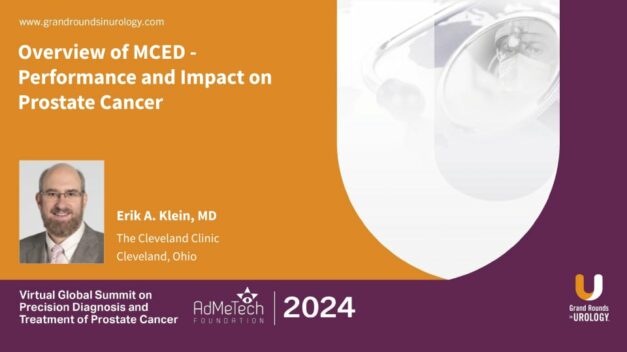Results from the Norwegian Prostate Cancer Consortium (NPCC)
Jan Oldenburg, MD, PhD, presents a detailed exploration of findings from the Norwegian Prostate Cancer Consortium, focusing on the predictive value of baseline PSA levels for prostate cancer risk and mortality. In this 10-minute presentation, Dr. Oldenburg analyzes the data from the NPCC study, revealing that PSA levels strongly correlate with long-term outcomes over an 18-year follow-up period.
Dr. Oldenburg calls for tailored screening protocols to balance early detection with minimizing unnecessary interventions. With comprehensive data and practical implications, his talk offers critical insights into PSA screening, making it an essential watch for clinicians focused on advancing prostate cancer management.
Read More




